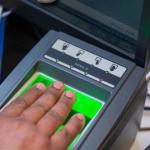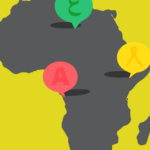Southern Africa Digital Rights Issue Number 3: SADC's Rocky Path - The challenges of biometric and digital identity systems
Southern Africa Digital Rights Issue Number 3: SADC's Rocky Path - The challenges of biometric and digital identity systems

Download the full Southern Africa Digital Rights Issue Number 3 here!
Across the continent biometric data collection systems are being implemented at an increasing pace and for a variety of reasons. And yet, as this issue of Digital Rights Southern Africa makes clear, there is no or slow commensurate roll-out of measures to ensure that such biometric data collection and processing systems are secure and to the actual benefit of the societies in which they are being implemented.
As this issue illustrates, the “worrying manifestations” of concerns around these systems cut across the six spotlighted countries and the region as a whole. Eswatini has become the bellwether in terms of violations on the regional digital rights landscape, and in this edition regulatory happenings in that country once again paint a threatening picture.
In Botswana, Namibia and Malawi authorities are struggling to come up with legislative measures to safeguard privacy rights as they seek to craft biometric data collection and digital ID policies, or to implement such systems where frameworks already exist.
In our Zambia contribution there is a call for a citizen-centric approach to implementing such systems, while in Zimbabwe concerns abound about the state’s intentions with digital ID systems.
In the end, it remains unclear what impact these systems will have on the countries under the spotlight, but one thing is certain, the trends are worrisome.
Available in this third edition:
Editorial: Spotlight on the vexing questions around biometrics and digital IDs (By Frederico Links)
Essential reforms needed to elevate biometric data protection: Botswana's Biometric Data Security Challenges and Urgent Calls for Legal Reforms (By Thapelo Ndlovu)
Risk of human rights infringement as Eswatini rushes to regulate the ICT sector (By Melusi Matsenjwa)
Malawi dragging its feet on filling legal gaps to prevent human rights’ violations (By Jimmy Kainja)
Namibia navigates biometric data privacy pending civil registration bill (By Dianne Hubbard)
Biometric ID rollout should foreground citizencentric data protection and privacy (By Levy Syanseke)
Zimbabwe grapples with complex realms of biometric and digital identification (By Helen Sithole)
Southern Africa Digital Rights is produced under ‘The African Declaration on Internet Rights and Freedoms: Fostering a human rights-centred approach to privacy, data protection and access to the internet in Southern Africa’ project.
Read more:
Southern Africa Digital Rights edition 1
Southern Africa Digital Rights edition 2




